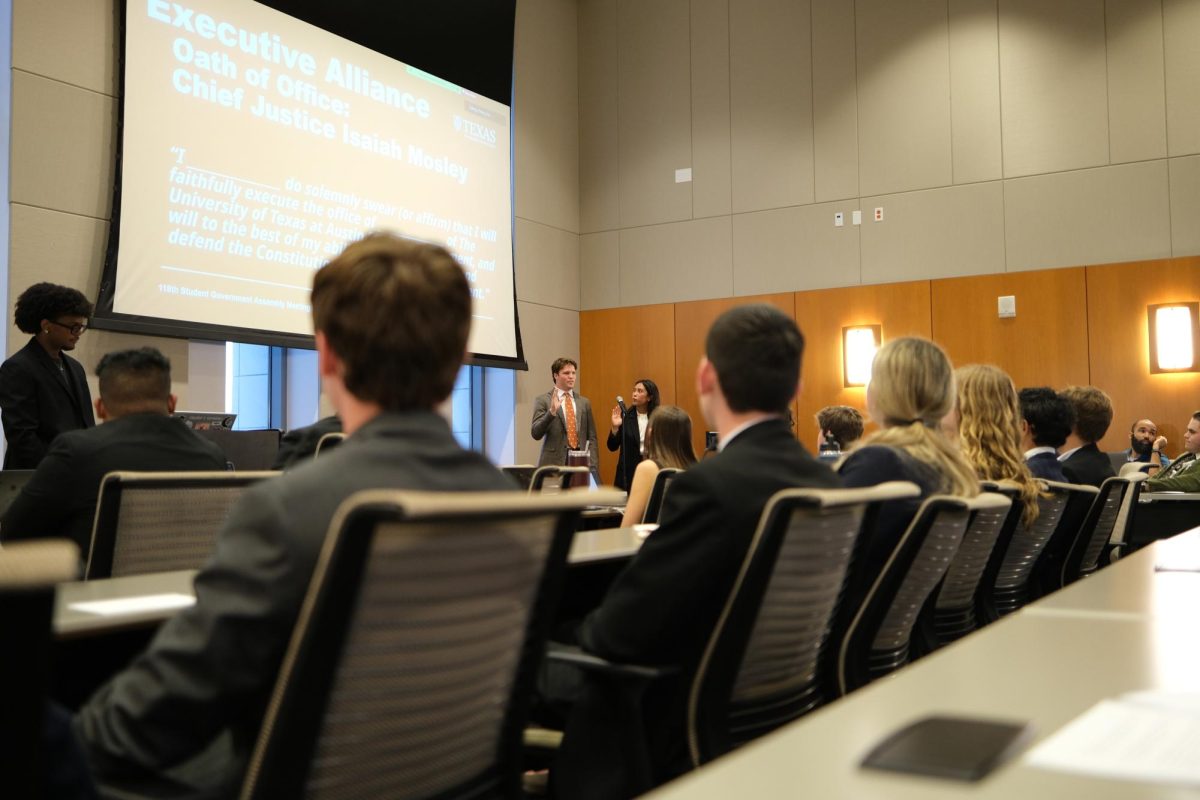Corrected at 7:10 p.m.: Because of a reporting error, an earlier version of this story misreported the percentage Powers would like to increase graduation rates by.
President William Powers Jr. challenged the University to boost its four-year graduation rate from 51 to 70 percent in the next five years. At the same time, he defended current faculty members from outside critics and suggested concrete plans about a UT medical school in Austin will be announced next week.
During his annual State of the University speech Wednesday, Powers addressed students, faculty, alumni and state leaders at the B. Iden Payne Theatre on the eve of the University’s 128th birthday. He stressed the need to keep tuition costs affordable while operating under an overall 16.5 percent smaller budget and state funding down $46 million from a year ago. Despite tighter economic conditions, the University received the second-highest annual donations of $374 million, only $9 million less than the 2008 record, Powers said.
He said increasing UT’s four-year graduation rates by almost 40 percent would be a huge savings for students, for families and for the University.
“It will take a combination of designing better pathways through the University, incentivizing students to make the right choices and holding students to degree plans that lead to timely graduation,” Powers said.
As more students graduate in a timely manner, other students will be granted entry into the University, Powers said.
Redesigning courses would be a major part of the initiative to improve graduation rates, with $50 million being delivered over five years for research into new degree pathways and curricula that reflect the latest knowledge about the student learning process, Powers said.
Powers said Sen. Kirk Watson, D-Austin, will deliver a collaborative plan for a medical school next week while the University continues talks with Austin health care providers.
“We need to continue to push forward to bring all this together in a medical school,” Powers said. Powers also used the speech, his sixth as president, to defend faculty members who he said were unfairly criticized as being under-productive in a series of external reports last year.
“The faculty are our biggest asset, and we need to recognize that,” Powers said. “They carry an average of 33 percent more teaching load credits than the UT System requires.”
School of Information professor Loriene Roy said she expected Powers’ speech to have a unifying effect on the faculty and was a welcome vote of confidence in the faculty’s ability to improve graduation rates.
“He spoke for the faculty but also for the way we do our work, our writing, our research and our teaching,” Roy said. “The responsibility to get students graduating on time in four years extends not only to the current faculty but to high school advisers, counselors, parents and the students themselves.”
Rhetoric and writing senior Matt Portillo said he worried that the pressure to graduate in four years might detract from the university experience.
“As a fifth-year senior, I don’t think it’s a one-size fits all,” Portillo said. “[A fifth year] allowed me to develop a breadth of experience and insight into myself that I needed to decide what direction I wanted to go in academically.”
Printed on September 15, 2011 as: Powers eyes UT grad rates, budget


















